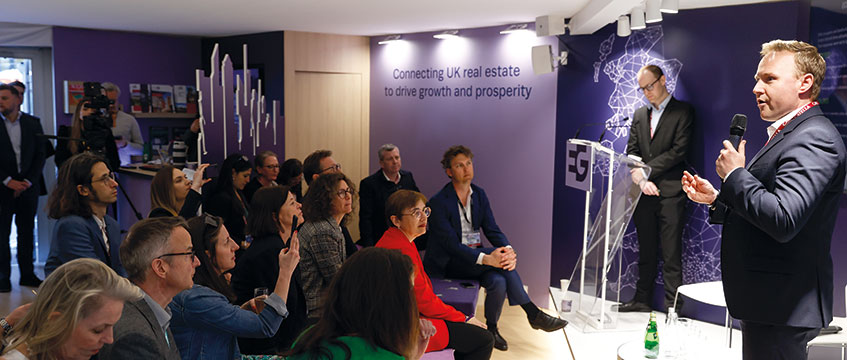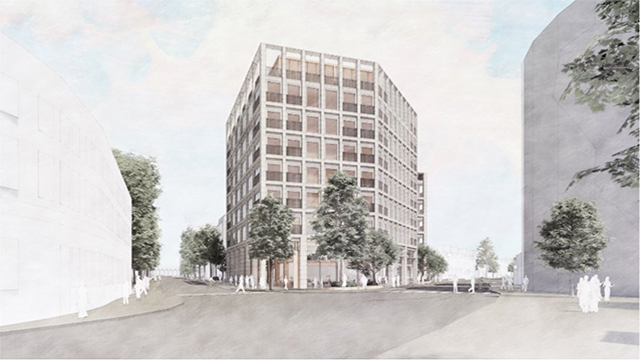The office sector is in “a full state of flux”, with just 14% of occupiers believing their existing portfolios align with their business objectives.
That was a key finding from a report on the future of the office by the Urban Land Institute and the Instant Group, launched at EG’s pavilion at MIPIM.
“I think there is a crisis, but there is huge opportunity,” said Craig Hughes, chief executive of partnerships at the Instant Group, opening a panel discussion to launch the report. “The clock is ticking, but it’s not too late for us all, and we really need to drive this transformational change.”
The survey questioned 285 office occupiers, landlords and third-party advisers in North America, Europe, Asia-Pacific, the Middle East and South America, and also included interviews with industry experts and the findings of two roundtables.
Competitive market
How did landlords and occupiers become so misaligned? “If you’re in a market where it’s difficult to find an office at all, [occupiers] have to accept what is offered,” said Boudewijn Ruitenburg, chief operating officer at Edge Technologies. “We have been in too long a period when we are not really looking at the needs of the tenants, but we just feed them what is available and they could only say ‘OK, thank you’ and pay high rents. That will change, because of Covid and the hybrid way of working. As a landlord you really have to listen. There is competition now.”
Charlie Foster, managing director for European real estate at RBC, acknowledged the expectation gap, but added that both sides of the relationship have more in common than might be thought.
“You have two sides of the office industry, the landlords and the tenants, both really wanting the same thing,” he said. “It’s a product that is fit for purpose from the customer perspective, with flexibility and service, but also a quality of accommodation that allows them to attract and retain staff and also operate efficiently. And for a landlord, and all of the investment and debt that sits behind that, [it offers] as reliable and high quality an income stream as possible. In the slightly less complicated days of old, it was a much more straightforward transaction based on long leases… Now it is so bespoke and unique, it will be an entirely bespoke product that needs to find and attract and retain a tenant.”
Lease agility
Landlords (80%) and occupiers (75%) expect greater lease flexibility and agility over the next five years. ULI Europe chief executive Lisette van Doorn said: “On the occupier side, it has become far more complicated. Pre-pandemic, people were expected to be in the office five days a week or maybe four, there was no real discussion about it. Now everything is up in the air, so there is also misalignment between the ultimate user and the tenant. That is where part of the misalignment comes from. What tenants needs now is flexibility to figure it out, and they need time.”
As leases change, 62% of landlords expect a decrease in capital values with the current valuation model, which only awards long-term contracts. The report authors said valuations need to acknowledge the value of providing additional services and amenities, as well as brand and reputation.
Nathalie Charles, deputy chief executive and global head of investment management at BNP Paribas Real Estate, said the expectation of value falls needs a more nuanced conversation.
“If you have a large stock, you have plenty of different things. You have fantastic assets which are really sought-after by tenants and where you will have increasing value. But you might also have assets which are a little less appealing, because of the location, the type of contract, the environment, their size, change of regulation,” she said.
“I don’t like to discuss value evolution as something which is only on one line in any market. To me, what makes our business in general unique is that each building is unique. And even if you have some shared characteristics and you can duplicate some elements, each piece, each location, each city, each environment is different. Some will be winners, some could be losers.”
In partnership with
To send feedback, e-mail tim.burke@eg.co.uk or tweet @_tim_burke or @EGPropertyNews












